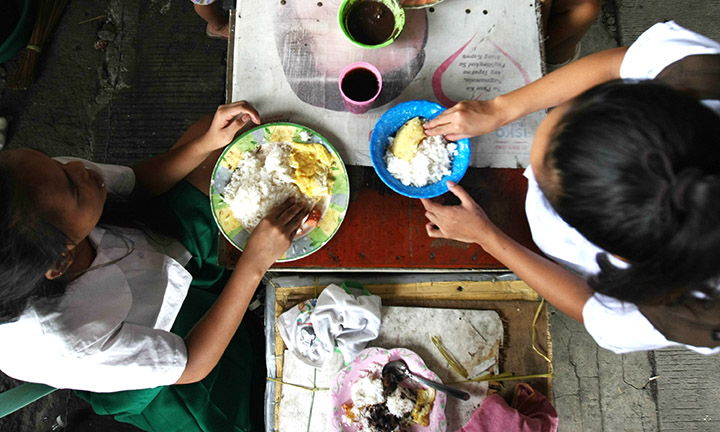What 'simple' solutions can Filipinos do to combat hunger and malnutrition? Here are DOST's recommendations
The Department of Science and Technology-Food and Nutrition Research Institute (DOST-FNRI) recommended that Filipino households implement simple but effective strategies to combat hunger and malnutrition.

In a statement on Feb. 29, the department urged and supported all families—rural and urban—to put these solutions into practice in order to expand on existing practice.
For Filipinos living in cities, where fruits and vegetables are often more expensive, the DOST-FNRI suggested setting up or maintaining small gardens with growing vegetables and fruits, even in pots or recycled containers, in order for families to grow their own nutritious food at a lower cost.
Raising livestock was also recommended, where according to the department, families who practice this method have a greater chance of reducing their experience of food insecurity.
Also, by joining various government initiatives and programs, where they can households aid their needs.
These solutions, it highlighted, can also generate income for families where they can be sold to neighbors or markets.
The recommendation was also supported by the Department of Health’s National Nutrition Council (DOH-NNC), which said that having a food garden is an urgent call to improve nutrition.
"Having a food garden will go a long way in bringing about socio-economic and nutritional benefits at the household level," DOH-NNC said.
The suggestions were in response to the 2021 Expanded National Nutrition Survey (ENNS), which revealed that roughly around one-third of Filipino households experience moderate to severe food insecurity, particularly in rural areas.
The DOST-FNRI emphasized the importance of understanding the root causes of food insecurity—where according to the Food and Agriculture Organization (FAO) of the United Nations is the lack of access to sufficient, nutritious food due to factors like physical unavailability, economic limitations, or poor food utilization.
This, according to the organization, is further highlighted by the FAO's 2021 State of Food Security and Nutrition, a global issue in which 2.3 billion people, or nearly 30 percent of the world's population face moderate to “severe food insecurity.”
Based on the 2021 DOST-FNRI survey, food insecurity is more common in households with more than five members, male-headed households, and those in lower-income brackets.
The survey also found that Filipinos use various coping strategies to deal with hunger and food insecurity, especially during the pandemic.
The most commonly used coping mechanisms include purchasing goods on credit, borrowing food, and seeking loan assistance from relatives, neighbors, and friends.
Given this, the department advised either implementing their suggestions or simply maintaining them if they were already in place.